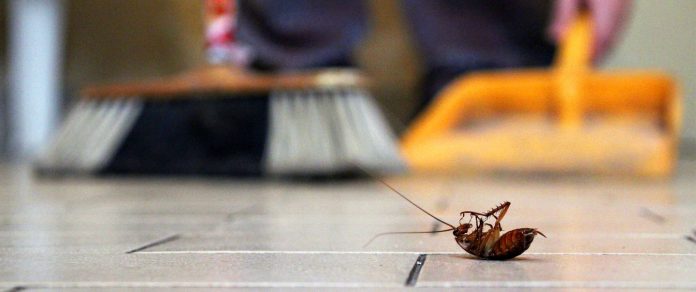All houses have unwanted guests no matter how clean and neat, and asking for professional help with pest control might be quite costly. In this article, we will discuss some of the best natural products that you can find in your homes for DIY pest control.

Garlic and Garlic-Mint Insect Sprays
Garlic is famous for its very strong smell, and whether you find such a smell to be delicious or disgusting, its pungency is what makes a natural insecticide. Though no scientific researches prove that garlic is actually an insect repellant, many seasoned homeowners that have dealt with insect infestations attest to its effectiveness in knocking out large numbers of insects. In creating a simple garlic spray, puree two whole garlic bulbs with a quart of water. Let that sit overnight, and then strain it. You have the option of adding a half cup of vegetable oil, a teaspoon of liquid soap, and then fill the jar with water. You can even upgrade the basic garlic spray and add mint by taking some mint leaves and blending it with garlic cloves, a dash of cayenne pepper and liquid soap. Once your sprays are ready, shower bountifully on infested plants.

Coffee Grounds
Unlike humans who love coffee, pests hate coffee. So much so that coffee can even prove fatal to ants! You can use leftover or used coffee to get rid of bugs by putting this in spots outside your house where pests can enter. Critters will steer clear of areas where they smell coffee, thus making your house not only aromatic, but even pest-free.

Dust Mite Oil Repellent
Another DIY natural product for pest control is a mixture of either clove, eucalyptus, lavender, peppermint or rosemary oil with water. Spray this concoction unto your bed lightly and air dry. Mites dislike these smells and so naturally will stay away. You can also produce the same effect with fleas and lice when you blend basil and lemongrass.

Hot Pepper Spray
Cayenne pepper is best for a more fiery DIY product for pest control. Mix 3 tablespoons of hot pepper flakes or 10 freshly and finely chopped peppers with a gallon of water, let them simmer in a pan for 15 minutes and let sit for 24 hours and then strain. To help the solution cling, add a few drops of dish soap.

Apple Cider Vinegar Trap
Vinegar is utilized as a natural cleaner and is so attractive to fruit flies that they get into the container where it is, but they won’t be able to get out. You can use this advantage by pouring a little apple cider vinegar onto a small bowl, cover it with plastic wrap and punch holes into the plastic using a pencil. You can also opt for a bottle or a different kind of container with a funnel-shaped top or shaker.

Bananas
If you want to deter bugs and nutrify your soil at the same time, get those banana peels, chop them up and place them under the soil around your plant stems. To increase your defense, put foil on the base of your plants – this will reflect the sun’s light onto the underside of the leaves and chase away aphids. But be careful with this trick as it might burn your flora.

Vegetable Oil Spray
Another potent natural product against crawlies is vegetable oil spray as it coats insects’ bodies, and suffocates them by covering the pores through which they breathe. To make this spray, blend one cup of vegetable oil with a tablespoon of soap and mix thoroughly. When you are ready to apply, add two teaspoons of the oil spray mix with one quart of water, and spray directly onto the surfaces of affected plants. This can work against aphids, mites, thrips, and many more.

Tomato-leaf Spray
Tomato contains tomatine, an alkaloid that effectively controls aphids and other insects, thus making it a viable ingredient for a natural pesticide. All you need to do is prepare two cups of chopped fresh tomato leaves and mix it with one quart of water. Let it sit overnight and then strain out the plant residue. Spray onto the insect-affected areas.
As you can see, there are many various products you have at home that you can utilize in making your very own DIY natural pesticide. Garlic sprays, coffee grounds, oil repellents, hot pepper sprays and all that are mentioned above are chemical-free, health-safe and don’t cost much! But in cases where the insect infestation can no longer be handled by these natural insecticides, know it’s time to call for the pest control experts.











































